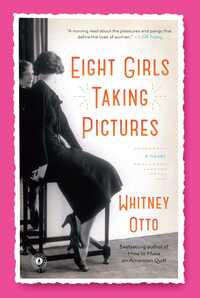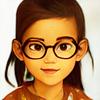Take a photo of a barcode or cover
Bookclub book - couldn't get more than about 45 pages into it. Dry and repetitively annoying.
Great book! Be warned it is really a collection of short stories, not a novel. Like many short story collections some are stronger than others. The book overall averages four stars though there are some stories that were three stars (still good) and some five stars (fantastic! live changing!). I'm inspired to get to know my camera again and learn more about the real women photographers that inspired these stories. I can see myself returning to reread some of these stories over and over.
It was a struggle to read. The author based the lives of the eight female photographers on real female photographers, but the stories all seems very much alike except for Lenny/Lee. In every decade of the past century, a middle class white woman with a father who supports her independence become involved with photography as a form of artistic expression. She feels the pull of marriage, love, and children as it takes her away from her photography. It's pretty repetitive until the last two chapters because the 1970s feminist character talks with the woman from the first chapter and the last chapter is about a female photographer who finally manages to combine both.
It was a struggle to read because they all sounded so similiar and the writing style didn't change much. The 1940 (Lenny) and the 1950s (Miri) have a bit of slang, but it was more like the same variation over and over again. I was glad when one photographer was bisexual because it broke up the monotony.
It was a struggle to read because they all sounded so similiar and the writing style didn't change much. The 1940 (Lenny) and the 1950s (Miri) have a bit of slang, but it was more like the same variation over and over again. I was glad when one photographer was bisexual because it broke up the monotony.
I loved the concept of this book, and as a whole it's a strong collection of stories. I found it difficult at times to stay really hooked on it though, as some of the stories dragged or were far less compelling than others. What I loved about it most were the rich descriptions of cities and architecture, of life in between the two world wars. I enjoyed reading about the different ways in which these different women found photography. As a photographer myself, I felt connected to the stories of how photography became a career or passion for each woman. The tensions each woman faced regarding the place of photography in her life vs. family, love, duty, societal expectations, patriarchal pressures were really well explored and I think that was important. But I would have loved to see the women revel in their art a bit more. I was a bit disappointed that the tone of all the stories was collectively so deeply melancholy, but I respected what Otto was trying to convey about this time in history, in feminism, in art. It's worth a read for any student or lover of photography, but it's not a page-turner.
I LOVE This book from middle to end. Yes, Middle to end because at the beginning I was clearly driven by the title... but it ended up being a novel on which girls who take pictures fall in love with guys (or girls) and these guys affect their life, sentimentally and professionally.
I thought it was then okay to read regular novel about love, romance and photography, and I am glad I did so! As I kept reading I discovered that this book is written in some sort of Chronological order, it shows the photographers dealing with World Wars and the evolution of cameras, photographic processes and political/social issues.
Later on I was very impress of how the Author decided to put all the characters together in the last chapter affecting the last character's lives. It made the book much more interesting, I guess... because I was expecting 8 different stories that had nothing to do with each other.. but no,no!
At last I would say this book was a 4.5 and not a 5 (I gave 5 because of how I am feeling now that I finish reading it, and how well it ended but 4.5 for the boring first two stories) I highly recommend this book if you love photography or just would like to know how [a:Whitney Otto|51027|Whitney Otto|http://d.gr-assets.com/authors/1248456113p2/51027.jpg]created such great stories about famous girl photographers and allowed me to almost believed that these stories were true.
I thought it was then okay to read regular novel about love, romance and photography, and I am glad I did so! As I kept reading I discovered that this book is written in some sort of Chronological order, it shows the photographers dealing with World Wars and the evolution of cameras, photographic processes and political/social issues.
Later on I was very impress of how the Author decided to put all the characters together in the last chapter affecting the last character's lives. It made the book much more interesting, I guess... because I was expecting 8 different stories that had nothing to do with each other.. but no,no!
At last I would say this book was a 4.5 and not a 5 (I gave 5 because of how I am feeling now that I finish reading it, and how well it ended but 4.5 for the boring first two stories) I highly recommend this book if you love photography or just would like to know how [a:Whitney Otto|51027|Whitney Otto|http://d.gr-assets.com/authors/1248456113p2/51027.jpg]created such great stories about famous girl photographers and allowed me to almost believed that these stories were true.
This is a collection is short stories about women photographers through history. Disappointing.
Obligatory mention: I got my copy thru First-Reads.
That said - this is one well written novel!
A wonderfully thought out story that explores both the history of photography, the evolution of women’s rights and world history thru compelling stories.
The topics discussed are as diverse as the women the stories follow: homosexuality, Nazi Germany, the horrors of war, marriage inequality, gossip, youth, freedom, dreams, responsibility, young love, and so much more.
Of particular interest to me was how Whitney Otto managed to fully explain each type of photography and its process while keeping it a part of the story. She doesn’t just mention the type of camera that each woman uses, she goes into what makes it unique, tying that element into the way the woman in each story goes about her photography.
Otto manages to weave a tale that travels thru time and connects all the women, not through their gender but through their passion in photography.
Well written, educational, and compelling.
That said - this is one well written novel!
A wonderfully thought out story that explores both the history of photography, the evolution of women’s rights and world history thru compelling stories.
The topics discussed are as diverse as the women the stories follow: homosexuality, Nazi Germany, the horrors of war, marriage inequality, gossip, youth, freedom, dreams, responsibility, young love, and so much more.
Of particular interest to me was how Whitney Otto managed to fully explain each type of photography and its process while keeping it a part of the story. She doesn’t just mention the type of camera that each woman uses, she goes into what makes it unique, tying that element into the way the woman in each story goes about her photography.
Otto manages to weave a tale that travels thru time and connects all the women, not through their gender but through their passion in photography.
Well written, educational, and compelling.
Snow day inspiration or not, I was thankful to have some time to finish this work. Any novel featuring Hannah Hoech and her innovative and trailblazing work during the Dada movement has me at "collage." I appreciated many of the familiar geographical and historical references to my own past and the way photos capture what may be left unsaid, yet stated in many words.
I'm truly in love with this book. Even if you have no knowledge of cameras I think it is a must read to any modern woman.
I prefer nonfiction so my rating is more a reflection of the fact that this was a novel loosely based on eight photographers. It is a great jumping off point, creating curiosity to delve deeper into their lives.



